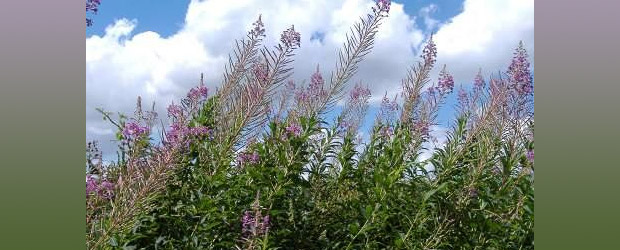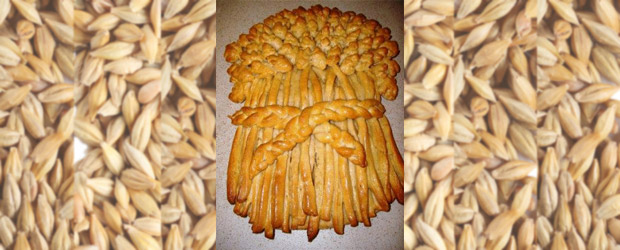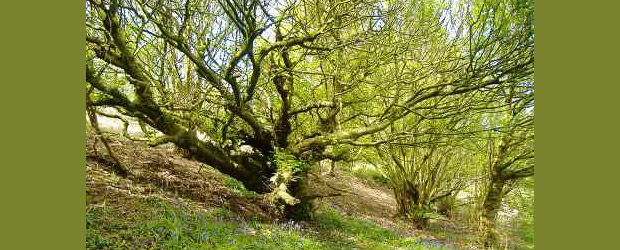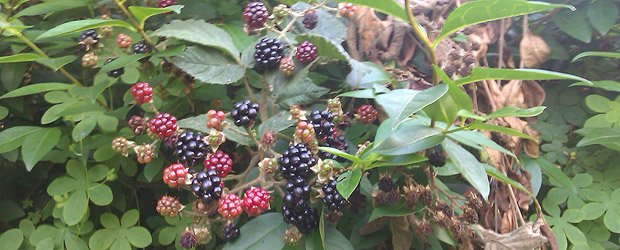
Summer’s Ending – The beginning of harvest
Lammas (1st August) to Autumn Equinox (20th – 23rd September)
Summer has reached its height, the longest day has passed, and the days are slowly shortening. Everywhere there are celebrations of all that has been achieved in the active part of the year, whilst the sun still warms the earth. It is a time of celebration but also of reflection as we reap what we have sown, and plan for the oncoming winter. It is a time of abundance as hazel, beech and chestnuts ripen, and blackberries and apples mature in the hedgerows; but also a time of sacrifice as the corn is cut down to make way for the new life of the seeds.

John Barleycorn
A Traditional British song – As told by Diana Ferguson in ‘The Magickal Year’
“There came three men from out of the west, Their fortunes for to try.
As they had sworn a solemn oath; John Barleycorn should die.
They ploughed, they sowed, they harrowed him in, Throwed clods upon his head,
And these three men made a solemn vow; John Barleycorn was dead.Then they let him lie for a very long time, Till the rain from heaven did fall.
Then little Sir John sprung up his head, And soon amazed them all.
They let him stand till midsummer, Till he looked both pale and wan.
And little Sir John he growed a long beard, And so became a man.They hired men with the scythes so sharp, To cut him off at the knee.
They rolled him and tied him by the waist, And served him most barbarously.
They hired men with pitchforks, Who pricked him to the heart.
And the loader he served him worse than that, For he bound him to the cart.They wheeled him round and round the field, Till they came unto a barn.
And there they made a solemn mow, of poor John Barleycorn.
They hired men with crab-tree sticks, To cut him skin from bone.
And the miller he served him worse than that, for he ground him between two stones.Here’s little Sir John in a nut-brown bowl, And brandy in a glass.
And little Sir John in the nut-brown bowl, Proved the stronger man at last.
And the huntsman he can’t hunt the fox, Nor so loudly blow his horn.
And the tinker he can’t mend kettles or pots, Without a little of barleycorn.”
Barley is one of the oldest cereals cultivated by ancient European peoples. The song tells the lifecycle of the crop, personified by John Barleycorn the spirit of the grain, and its happy culmination into whiskey.

Tree of the Season – Hazel (Corylus avellana)
“And fill all fruit with
ripeness to the core;
To swell the gourd,
and plump the hazel shells
With a sweet kernel”
~ From ‘To Autumn’ by John Keats
Hazel is a naturally multi-stemed tree that typically grows in the understory layer of native deciduous woodlands. Its bronze barked stems hold large round, floppy furry leaves which come to a steep point and sit alternately along the stem. In Spring it is one of the first trees to flower, with its bright yellow male catkins and tiny delicate pink female flowers. In late summer the hazel or cob nuts ripen but it is difficult to collect any before the squirrels get to them!
Uses – Hazel wood is hard, pale and splits easily. It also can be twisted without breaking. There is evidence that hazel has been coppiced for over 4,000 years and historically man has used the wood for a multitude of things that has earned Hazel the name ‘Woodsman friend’. Hazel was used for wattle (as in wattle and daub), hurdles, thatching spars and pegs, broom handles, withys, benders, dowsing rods and more. Nowadays coppicing is less common, but used in some woodland for its conservation benefits. Modern woodland products may include; walking sticks, broom handles, hurdles, bean poles, tent pegs etc. Hazelnuts are a rich food source; rich in fatty oils, and protein. Traditionally children were given the day off school on 14th September to go ‘a-nutting’ a custom still practiced up to the First World War.
Folklore – The ancient Celts regarded the Hazel as the tree of knowledge and immortality. All knowledge and understanding was bound, sweet and concentrated, in a hazelnut’s kernel, so all wisdom was combined ‘in a nutshell’. It has an affinity with water and there are many stories linking hazel with sacred pools (places of healing) and the magical salmon that lived there. The characteristic Y-shaped hazel rods have traditionally been used to dowse for water and other things (such as minerals, metals and even people) for thousands of years. To dowse hold the Y stick and pull slightly apart to hold the stick horizontal and parallel to the ground, when you have found something the end of the stick will either fall or rise (depending on the user), many users also report a kind of ‘kick back’ force.
Wisdom – The hazel encourages us to seek out information and inspiration in all things. Just as the Hazel concentrates all its goodness and continued existence in the kernel of its fruit, so we attain wisdom by distilling knowledge down to its purest form and passing it on down the ages.

Scrummy Seasonal Snacks – Blackberry Bliss
Blackberries are bursting from the hedgerows. Make sure you pick plenty before Michaelmas day (29th September) as that is when the devil spits on them (according to biblical legend when the devil was cast out of heaven he landed on a bramble bush and so cursed its thorns).
Blackberry Pancakes – Add a handful of blackberries to pancake batter, fry and serve with a drizzle of honey.
Blackberry Spread – Add 500g of blackberries and 500g of tart apples (chopped but not peeled or cored) with the grated zest and juice of 1 lemon in a pan and simmer for 15 mins until soft and mushy. For every 400g of pulp add 300g of sugar and heat gently till sugar dissolves then simmer and stir until mixture is thick and smooth (about 20mins) . Store in airtight jars and spread of toast or scones.
Autumn Pudding – Cut 8 – 10 slices of bread and remove the crusts. Moisten with milk and line the sides of a pudding basin. Fill the basin with a mixture of dark fruits – mainly blackberries, with a few elderberries, sloes, crab apples etc. These berries should have been cooked for 10 mins and sweetened with honey or sugar. Cover top with more moistened bread, then cover with greaseproof paper, weigh down and leave to stand overnight in the fridge. Turn out of the bowl and serve with cream or custard.
Seasonal Stories Through the Year:
Winter Beginnings – Journeying into Darkness
Winter’s Ending – The Returning Sun
Spring Beginnings – Light Becoming Balanced with Dark
Spring’s Ending – Awakened Energies
Summer Beginnings – The sun reaches its zenith
Summer’s Ending – The beginning of harvest